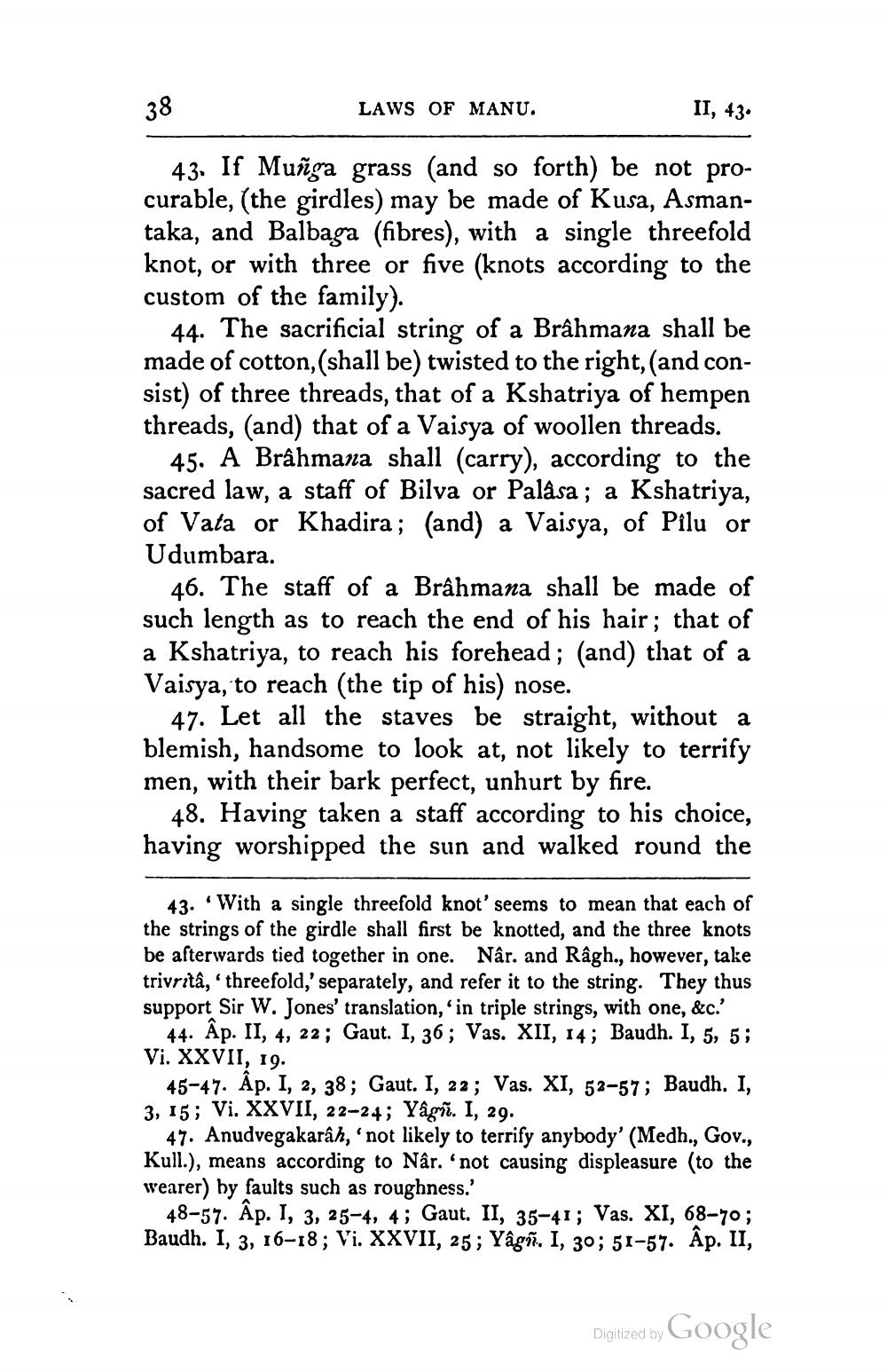________________
LAWS OF MANU.
II, 43.
43. If Muñga grass (and so forth) be not procurable, (the girdles) may be made of Kusa, Asmantaka, and Balbaga (fibres), with a single threefold knot, or with three or five (knots according to the custom of the family).
44. The sacrificial string of a Brâhmana shall be made of cotton,(shall be) twisted to the right, (and consist) of three threads, that of a Kshatriya of hempen threads, (and) that of a Vaisya of woollen threads.
45. A Brâhmana shall (carry), according to the sacred law, a staff of Bilva or Palása; a Kshatriya, of Vata or Khadira; (and) a Vaisya, of Pilu or Udumbara.
46. The staff of a Brâhmana shall be made of such length as to reach the end of his hair; that of a Kshatriya, to reach his forehead; (and) that of a Vaisya, to reach (the tip of his) nose.
47. Let all the staves be straight, without a blemish, handsome to look at, not likely to terrify men, with their bark perfect, unhurt by fire.
48. Having taken a staff according to his choice, having worshipped the sun and walked round the
43. With a single threefold knot' seems to mean that each of the strings of the girdle shall first be knotted, and the three knots be afterwards tied together in one. Når. and Râgh., however, take trivritâ, 'threefold,' separately, and refer it to the string. They thus support Sir W. Jones' translation, in triple strings, with one, &c.'
44. Âp. II, 4, 22; Gaut. I, 36; Vas. XII, 14; Baudh. I, 5, 5; Vi. XXVII, 19.
45-47. Ap. I, 2, 38; Gaut. I, 22; Vas. XI, 53-57; Baudh. I, 3, 15; Vi. XXVII, 22-24; Vâgii. I, 29.
47. Anudvegakarâh, 'not likely to terrify anybody' (Medh., Gov., Kull.), means according to Nâr. 'not causing displeasure (to the wearer) by faults such as roughness.'
48-57. Ap. I, 3, 25-4, 4; Gaut. II, 35-41; Vas. XI, 68-70; Baudh. I, 3, 16-18; Vi. XXVII, 25; Yâgñ. I, 30; 51-57. Ap. II,
Digitized by Google




